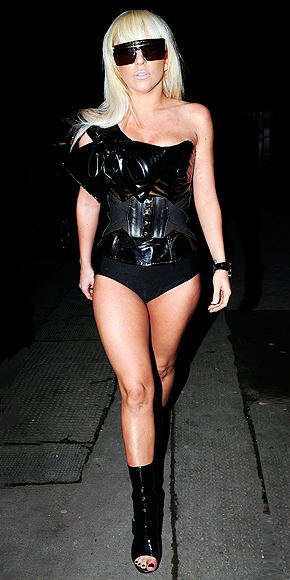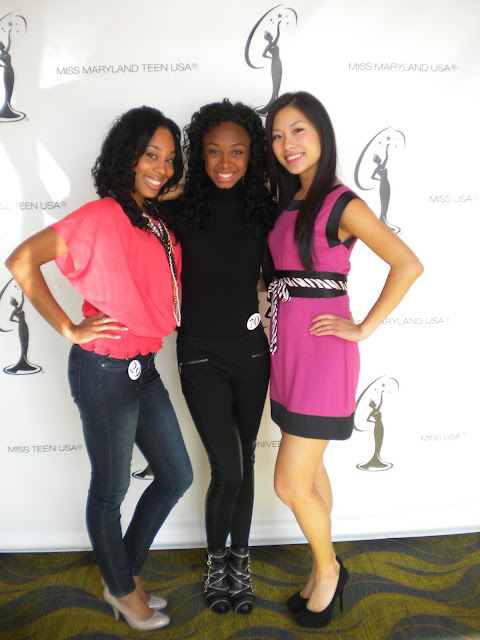Philanthropic rant, continued:
On the other end of the demographic spectrum is local D.C. native Kimberly Robinson who is neither exploited nor underprivileged. By day she is a financial legal analyst for Google and invests her free time as a fashion designer for her own line Kimberly Kouture and also works to further the vision of sustainability with the nonprofit Fashion Fights Poverty.
Other designers like Robinson work directly with the individuals that manufacture the textiles they work with. As a part of being socially responsible, Fashion Fights Poverty follows a set of guidelines that helps to maintain the integrity of all levels of the process: those making the textiles and those designing them. Sweatshop free, vintage, retro, or hand-made all describe any material that these designers are required to work with. Needless to say, it’s a Project Runway challenge taken to the extreme.
That's where Robinson comes in. Designers feature their collections at Fashion Fights Poverty’s annual gala/ fashion show where each selected designer features its’ take on eco-friendly. Started in 2005, Fashion Fights Poverty assumes the responsibility to encourage individuals to continue shopping, but to be smart educated consumers, conscious of the impact their purchase has on the global society. Fashion Fights Poverty is a 501(c)(3) organization dedicated to earth- friendly fashion. Through their booked year-round schedule of events that are geared toward raising money and awareness for various causes, the organization works tirelessly to improve the quality of life for The proceeds from Kimberly's line went to Aid for Artisans. Both non-profits seek to help impoverished individuals all over the world through direct funding and supporting the individuals who manufacture the textiles. Dedicated to “to raise awareness for initiatives that encourage and support creative, effective, and sustainable means of challenging poverty,” Fashion Fights Poverty (FFP) works to also bring relevancy and social consciousness to the world of fashion.

One of the few struggles Robinson faces, a gorgeous leggy blonde who stands at least a head taller than most women, is being taken seriously. “We [designers] often times are sort of pawned off as being different and eccentric and not able to put together complete thoughts. But I feel like the people that are involved with Fashion Fights Poverty are definitely trying to use their talents toward the good of humanity, which is kind of fantastic!”
Robinson reflects on her journey with Fashion Fights Poverty (FFP): “… got involved in Fashion Fights Poverty about three years ago. I was contacted by them to do their lookbook, which is a coffee table book that features designers from all over the world that have come together for sustainable fashion whether it be fair trade, actually using eco-friendly textiles, all that kinda stuff...It’s definitely a fantastic organization. I think it’s really special when you get a group of really socially conscious, artistic, creative types together.”
One of Robinson's Designs circa 2007 courtesy of Projectbeltway.com
Robinson shares how, “...after traveling the world and sort of seeing where all these people come from [where she buys textiles] and knowing that y’know some of these people are the people who are making the shirt that I can buy at Forever 21 for 12 dollars and that I’m going to wear one time and then I'm going to throw it away. But that person [who made the shirt] was just paid a nickel for all of the work they did that day. And it almost appalled me to know so I’m sort of in the mindset of knowing that whoever created it, whoever was a part of it was able to better their life and put in that situation and so I now buy quality over quantity. I think it’s really important. Sure we all have those silly shirts in our closet that are just:
‘Oh gosh, why the heck did I buy this one?’ or ‘When am I ever going to wear this again, this is a mistake, this is dreadful!’ If that’s what you want to do that’s fine. I really think that in order to be an educated consumer, I think that’s the best thing you could have. You have to be a smart fashionista.”
But not only is she a ‘smart fashionista’ she cares about the Earth too:
"We’re working together to sort of promote the idea that what we consume, here in our lives on a day- to-day basis really does have an impact on the rest of the world. We’re a global community. You just need to open people’s eyes to that fact that it’s not just what you’re wearing to go to class; it’s what you’re buying in a store that somebody else is making in a land far away that’s providing for their families. It’s this whole idea of global consumerism that people don’t think about. But I’m guilty of it myself. People don’t think about. But it is to be aware…”
For more info regarding any and all of the designers mentioned in these postings, be sure to email me at soufa540@gmail.com or visit the following websites:
Please, when considering the day of my birth, patronise these businesses in the hope for a better global tomorrow.































